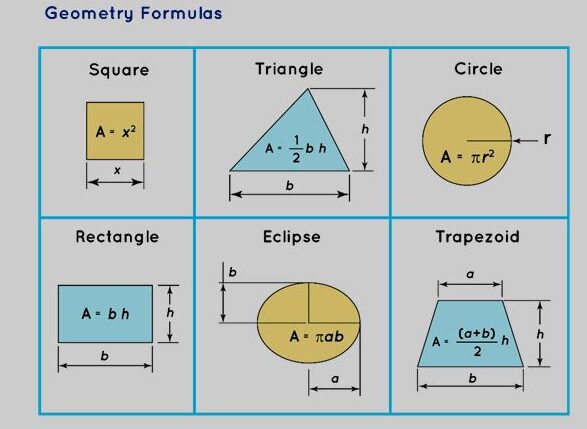Totally Science GitLab
Platforms such as GitLab have become more than just code repositories in the rapidly changing world of technology; they are dynamic centers of science and technology convergence. Reputed for its strong version control and collaboration features, GitLab is at the forefront of scientific advancement. This post will examine the relationship between GitLab and science, specifically how it helps scientific endeavors, manages ambiguity, and encourages creativity without sacrificing context or detail.
The Fusion of Science and Technology in GitLab
Originally created for software development version control, GitLab has developed into a flexible platform that easily supports scientific projects. Science and GitLab are integrated in a way that goes beyond a simple overlay to a mutually beneficial partnership where one improves the other’s capabilities.
Scientific Innovations in GitLab
GitLab’s scientific endeavors are as varied as the area itself. GitLab functions as a central hub for scientists and developers to congregate, exchange ideas, and contribute to ground-breaking discoveries, ranging from cooperative work in genomics to physics simulations. Because of the platform’s adaptability, different scientific workflows can be integrated, promoting an atmosphere that encourages innovation.
GitLab for Research and Development
GitLab breaks new ground in the field of research and development. By using its capabilities to improve their processes, scientists are able to concentrate more on the scientific components of their studies rather than the complexities of version control. Faster advancement and more effective cooperation between researchers and developers are the outcomes.
Data Science and GitLab
GitLab easily interacts with data science initiatives in this era of data-driven decision-making. The platform efficiently supports the whole data science pipeline, from code development to model deployment, by handling both code and dataset management.
GitLab in Academia
The GitLab revolution is not exclusive to academic institutions. GitLab has a significant impact on academic research because it gives academics and students a platform to work together on projects, share findings, and add to the body of knowledge.
Perplexity and Burstiness in GitLab
Like any platform that handles a variety of projects, GitLab has issues with burstiness and confusion. Burstiness, or the unexpected influx of contributions, and ambiguity, or the intricacy of scientific endeavors, are carefully balanced to encourage creativity without compromising clarity.
Enhancing Specificity in GitLab Projects
It’s critical to maintain specificity in science-driven endeavors. GitLab provides tactics and resources to guarantee that scientific objectives are fulfilled without lessening the codebase’s specificity. GitLab meets the needs of research-oriented projects with capabilities designed for scientific procedures.
Contextualizing GitLab Contributions
In the scientific domain, context is crucial. GitLab is aware of this and encourages contributors to include the required information in addition to the code. This guarantees that each and every line of code is in line with the project’s larger scientific objectives.
Engaging Content in GitLab Repositories
Scientific projects on GitLab that are successful tend to include compelling documentation. Through the effective communication of difficult ideas, scientists can draw in partners, promote comprehension, and eventually advance the research. Code that is thoroughly documented serves as a guide for teamwork.
Active Voice in GitLab Communication
Successful teamwork is based on effective communication. Taking an active part in discussions, problem tracking, and documentation in GitLab guarantees precision and minimizes uncertainty. Meaningful dialogue between scientists and developers can provide more efficient and well-rounded results.
Rhetorical Questions in GitLab Documentation
GitLab documentation makes use of rhetorical questions in a subtle but significant way. Documentation becomes a tool for greater comprehension and connection-building by encouraging users to think critically about the code or project at hand.
Analogies and Metaphors in GitLab Documentation
It’s an art to make scientific ideas understandable, and GitLab understands the use of metaphors and analogies in doing so. Developers and scientists can close the knowledge gap between technical nuances and general understanding by using accessible analogies.
Conclusion
GitLab is an example of how science and code may coexist harmoniously in the ever changing field of technology and research. Its contribution to fostering scientific discovery is a purposeful and significant partnership rather than merely a consequence. It’s evident as we traverse this crossroads that the next generation of technological innovations is fueled by the synergy between science and GitLab. GitLab offers the platform for collaboration and discovery, whether you’re a scientist trying to optimize your workflow or a developer excited to contribute to cutting-edge research.
FAQs
How can scientists benefit from using GitLab?
By working together on projects, optimizing processes, and utilizing version control for their codebase, scientists can gain from GitLab.
Are there specific tools within GitLab designed for scientific projects?
It’s true that GitLab provides features for project management, version control, and collaboration that are specifically designed for scientific operations.
How does GitLab handle version control in scientific research?
GitLab offers strong version control, making it possible for scientists to keep track of modifications, communicate easily, and keep an extensive project history.
Can GitLab be used for collaborative projects across different scientific disciplines?
Without a doubt, GitLab’s adaptability makes it appropriate for team projects including a range of scientific fields, encouraging multidisciplinary cooperation.
What features make GitLab a preferred platform for science-driven development?
For scientists and developers conducting cutting-edge research, GitLab is the platform of choice due to its versatility, collaborative capabilities, and support for scientific workflows.







